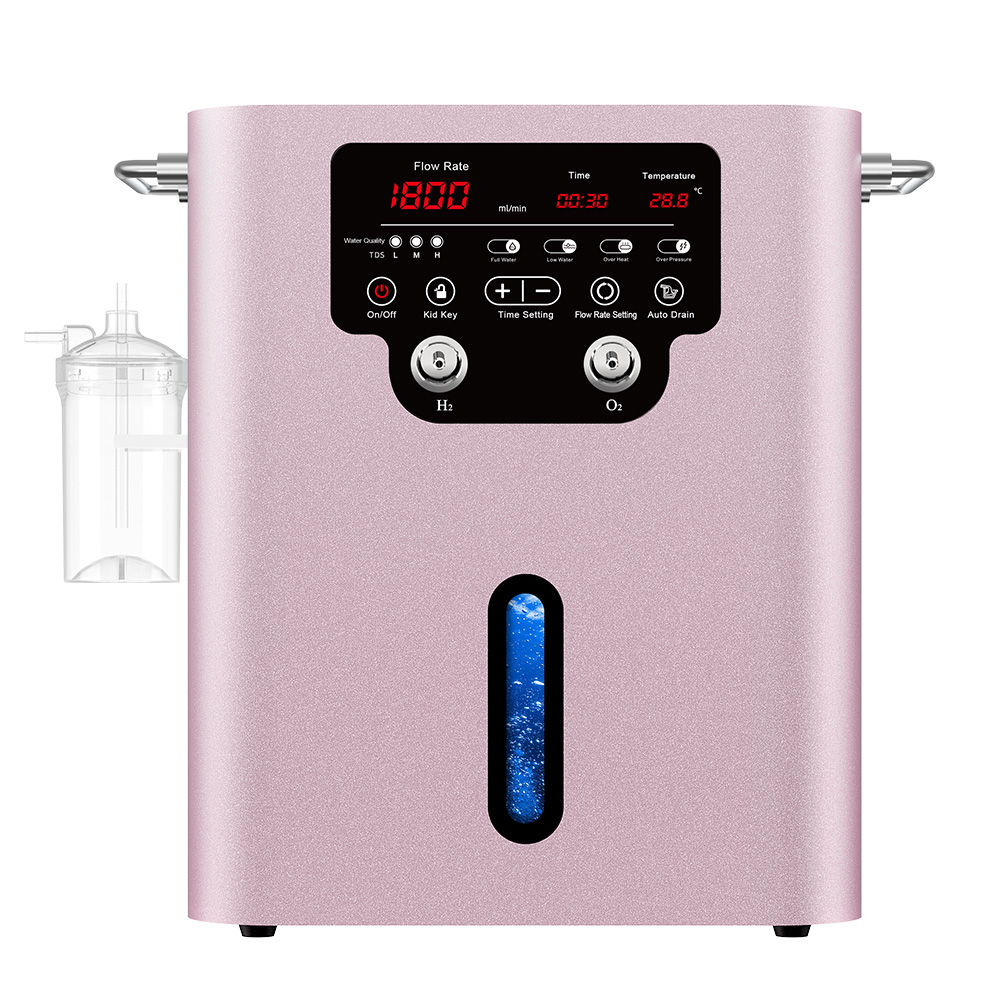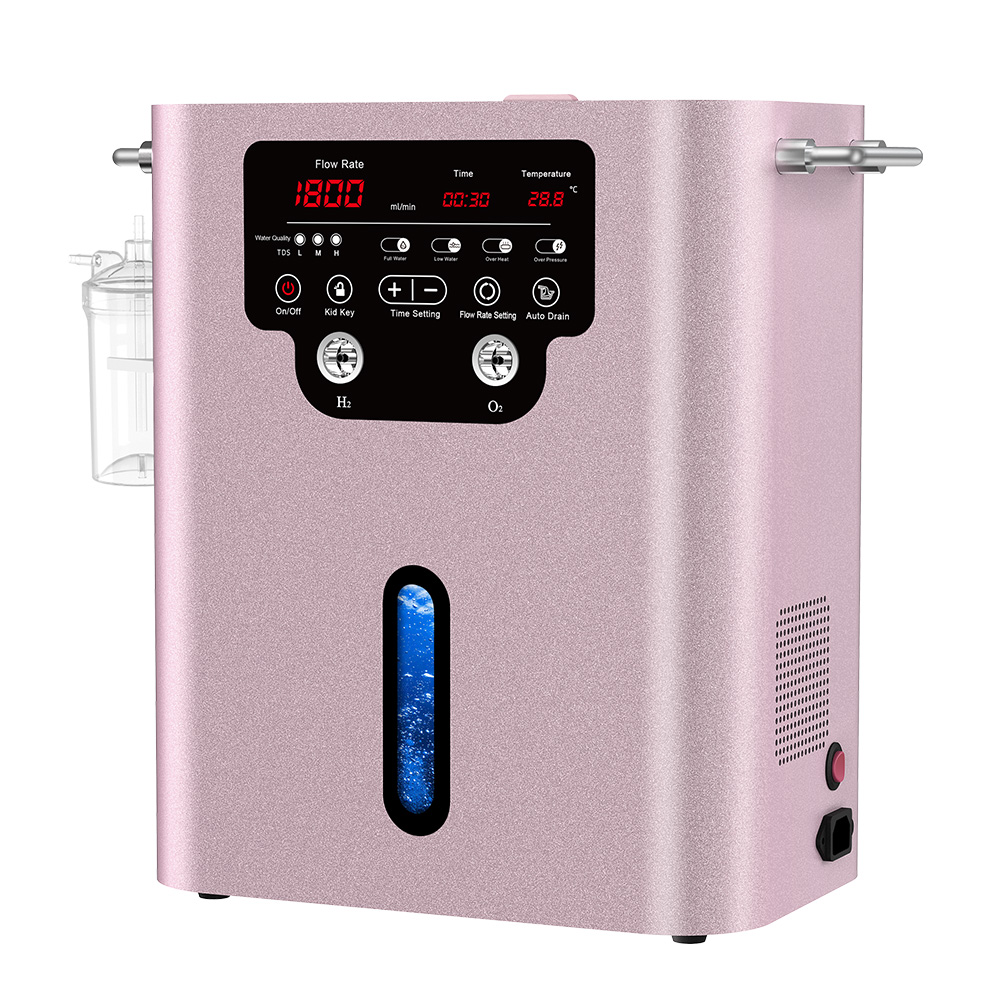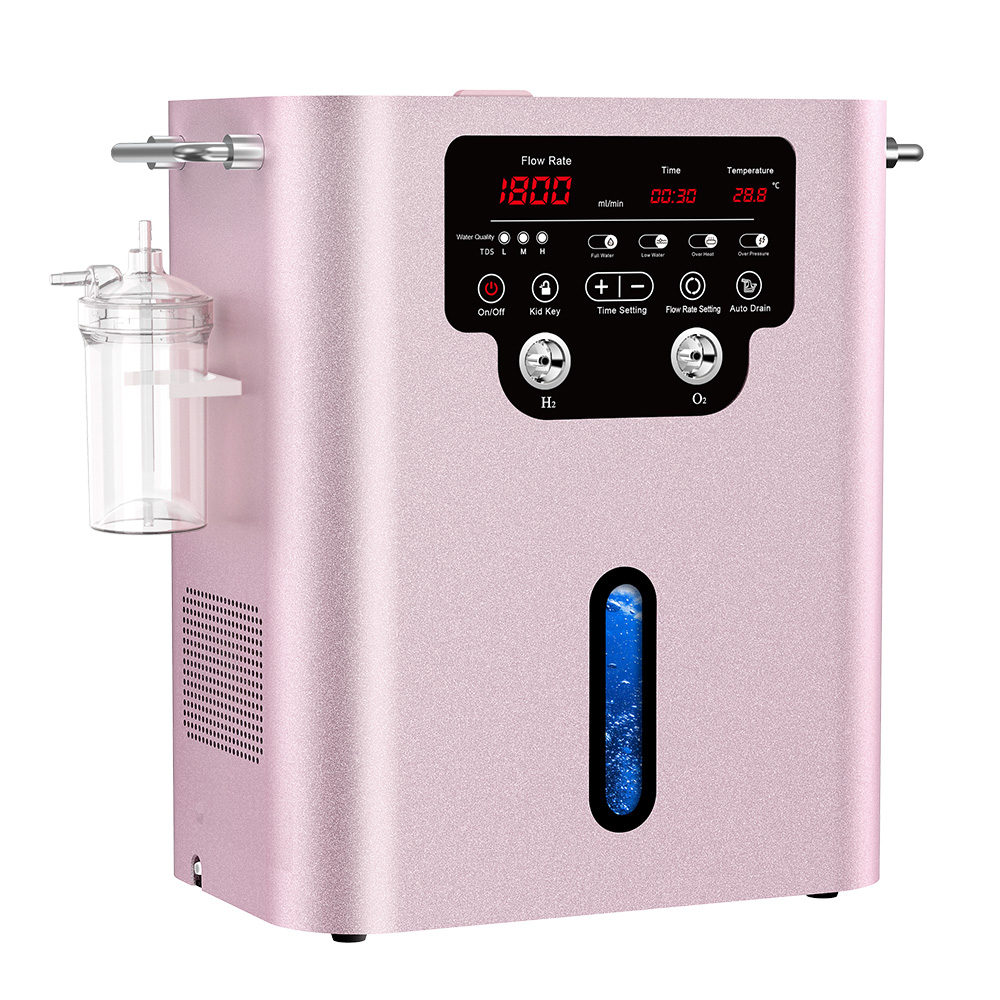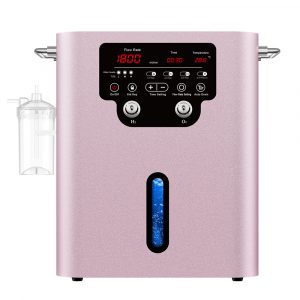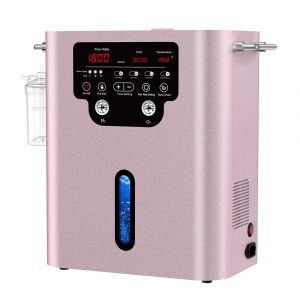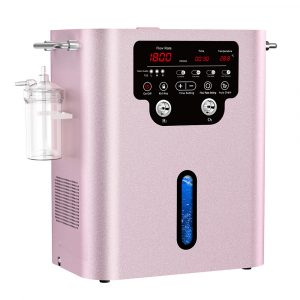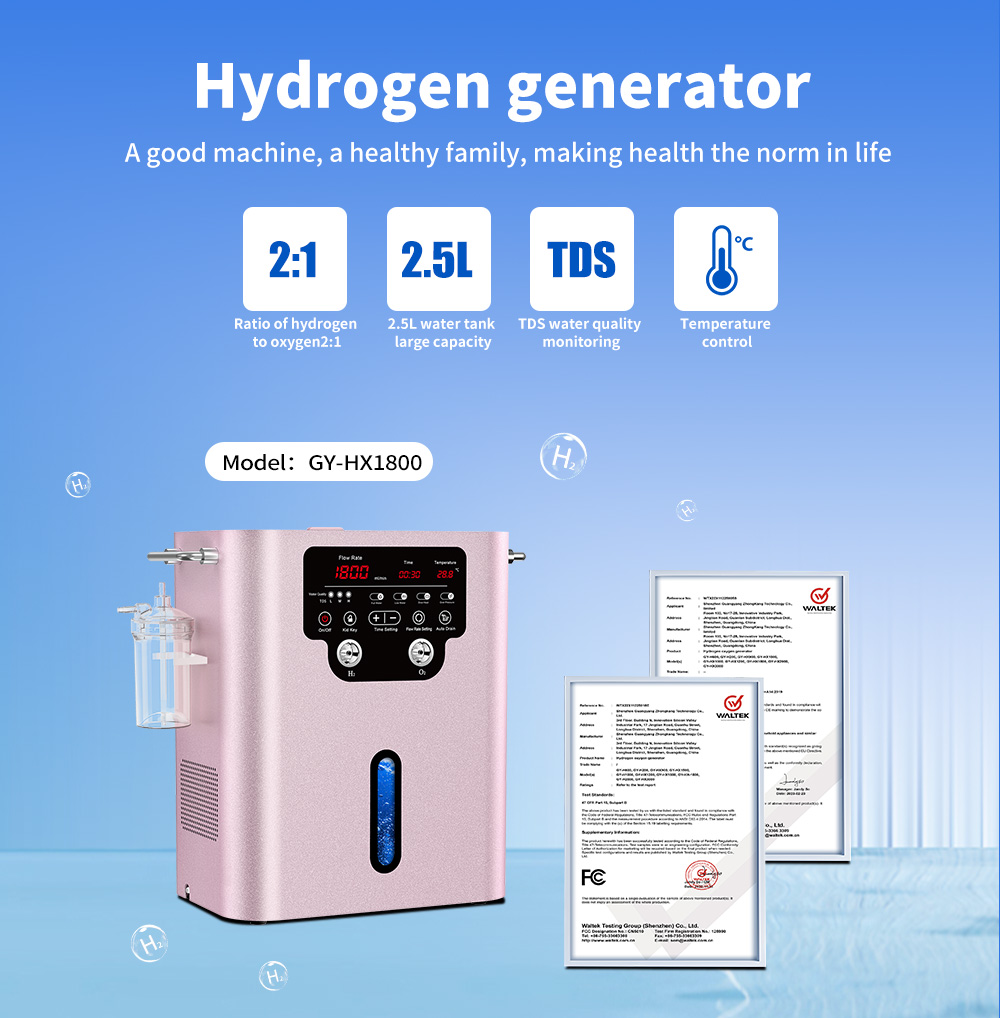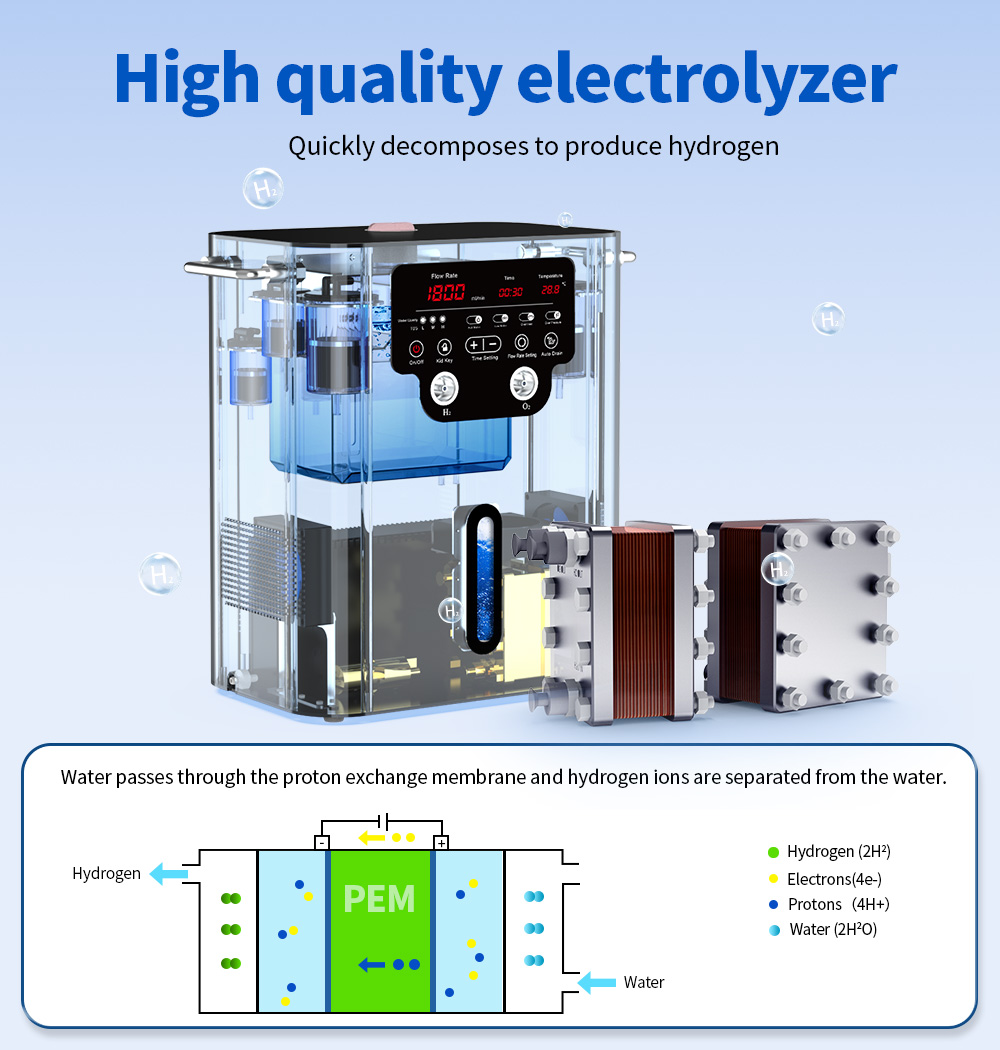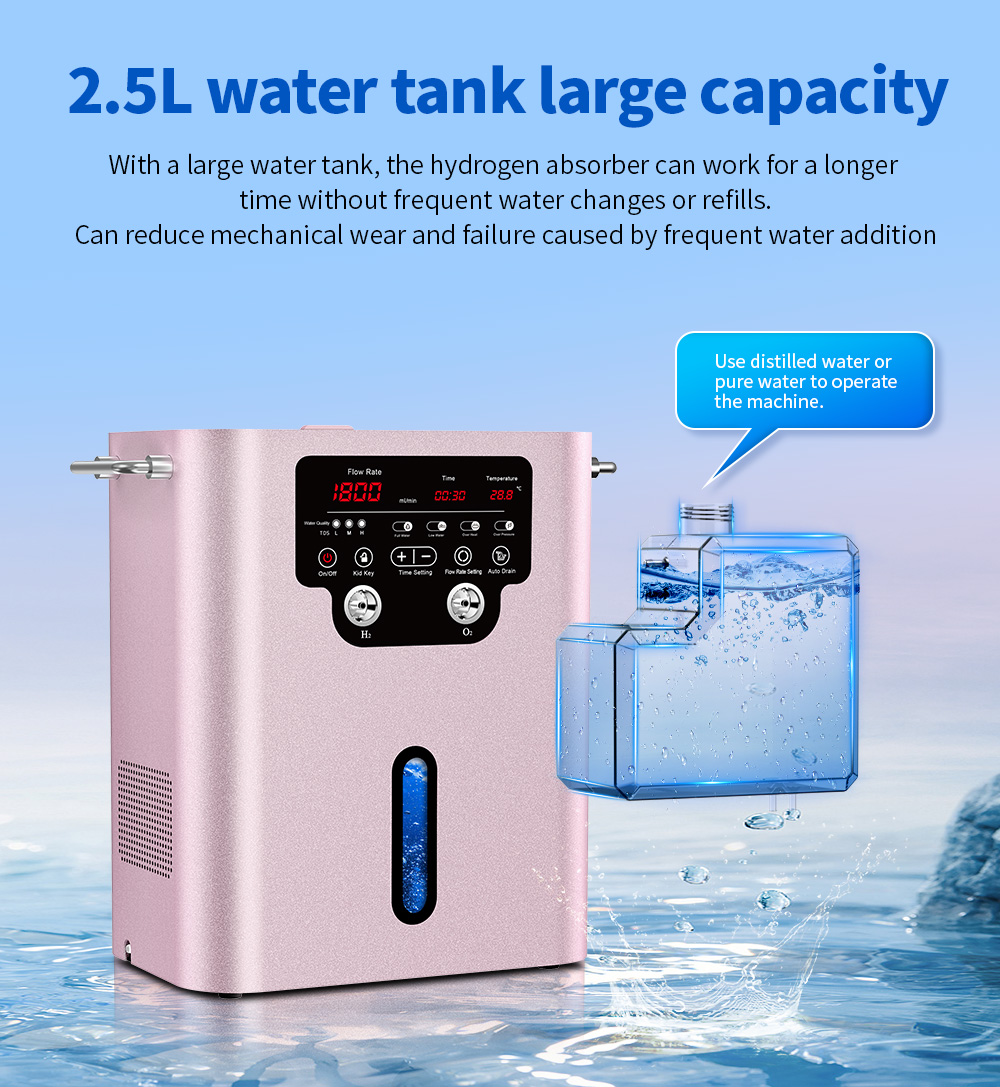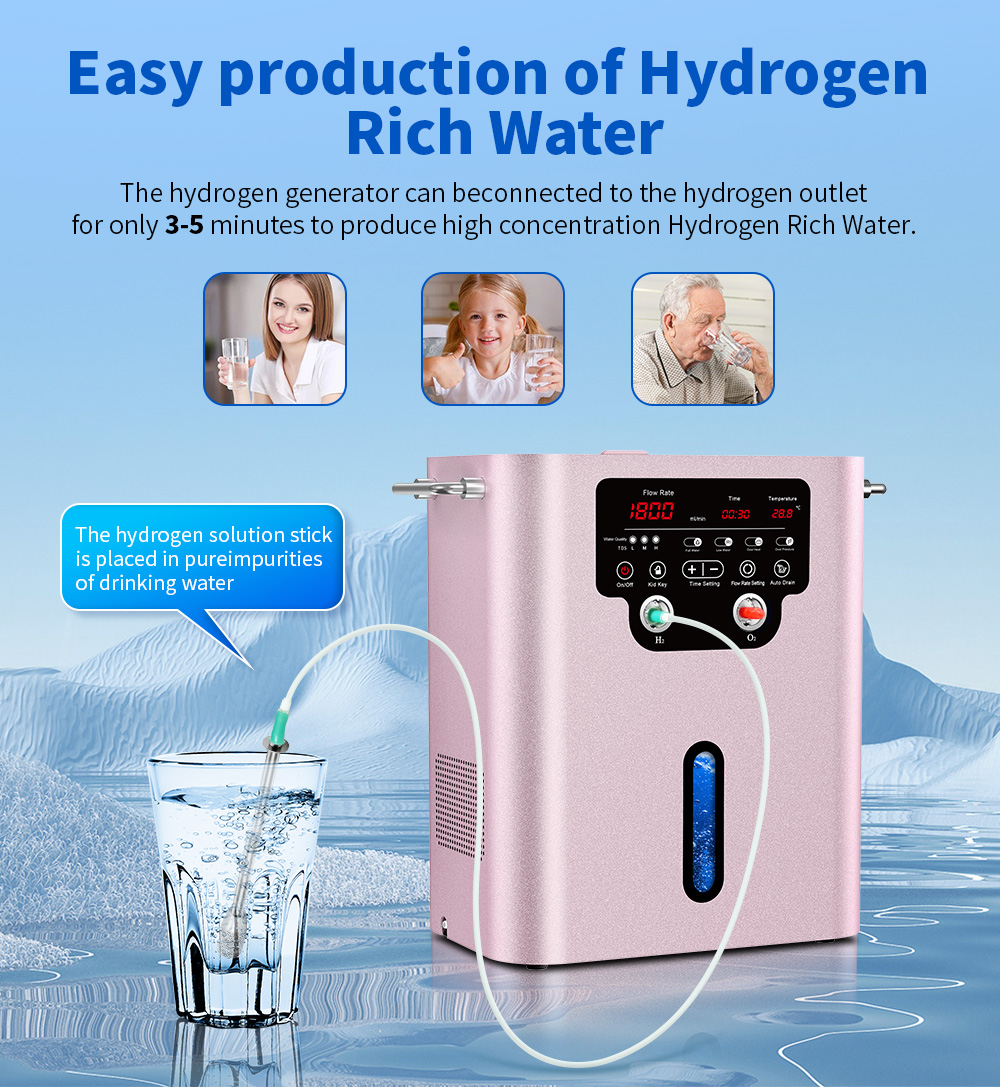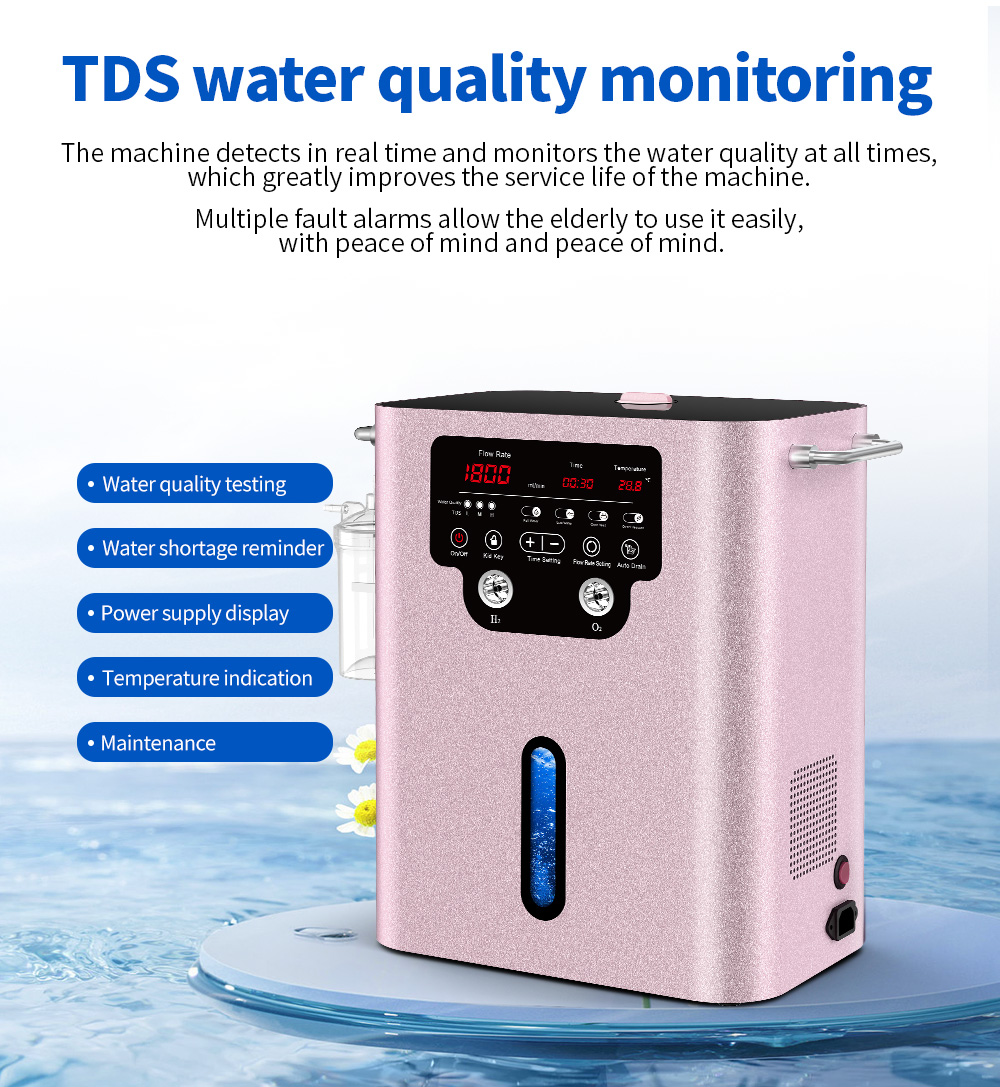1800ml/Min Hydrogen Oxygen Generator Inhaler
$2,780.00 USD
① 99.996% H2 gas output, high purity of hydrogen inhalation.
②Stable output pressure H2 flow rate
③TDS water quality testing function to monitor water quality in the tank .
④Intelligent protections against over-heat , over-pressure, and over-current, excess water , low water ect.
***excellent over-heat , even after continues using for 8 hours, the machine doesnt excess 40 ℃
Hydrogen Inhalation Introduction
Hydrogen is an excellent selective anti-oxidant which can neutralize only toxic free radicals within the body, reduce oxidate damage, anti-inflammatory, anti-oxidative stress, anti-apoptotic and the regulation of both autophagy and hormone signaling pathway.
Hydrogen inhalation therapy has been associated with several potential health benefits based on its antioxidant, anti-inflammatory, and cell-protective properties. Below is a detailed overview of the health benefits, supported by findings from the provided search results:
1. Antioxidant Effects
Hydrogen gas has the ability to selectively neutralize harmful free radicals in the body, particularly hydroxyl radicals (·OH), which are known to cause oxidative stress and cellular damage. This antioxidant capacity helps protect cells from damage and may slow the aging process or reduce the risk of chronic diseases.
- This selective antioxidant mechanism is especially significant as hydrogen can penetrate cell membranes and reach the nucleus, unlike many other antioxidants 1.
2. Anti-inflammatory Properties
Hydrogen inhalation has been shown to modulate inflammatory responses in the body. It can help reduce inflammation in conditions such as rheumatoid arthritis, inflammatory bowel disease, and other chronic inflammatory disorders.
- By lowering inflammation levels, hydrogen therapy may alleviate symptoms and improve the quality of life for patients suffering from these conditions 2.
3. Neuroprotective Potential
Research suggests that hydrogen inhalation may offer protective effects for the nervous system. In animal studies, hydrogen has shown promise in reducing brain injury and improving functional recovery after neurological damage such as stroke or spinal cord injury.
- This makes hydrogen therapy a potential supportive treatment for neurodegenerative diseases like Parkinson’s and Alzheimer’s 2.
4. Support for Chronic Disease Management
Hydrogen therapy has been explored as an adjunct treatment for various chronic conditions:
- Cancer: Some clinical observations, such as those by Dr. Xu Kecheng from the Fuda Cancer Hospital in Guangzhou, suggest that hydrogen inhalation may help improve the condition of cancer patients when used alongside conventional treatments 1.
- Diabetes: Patients with diabetes have reportedly seen improvements in blood sugar control and a reduction in complications like neuropathy or retinopathy when combining hydrogen inhalation with hydrogen-rich water consumption 1.
5. Cardiovascular Health
Hydrogen gas may offer cardiovascular benefits by reducing oxidative stress and inflammation, which are key contributors to heart disease. It may help protect heart tissue and improve recovery after cardiac events 2.
6. Improved Quality of Life and General Wellness
Even for individuals without diagnosed diseases, hydrogen inhalation is considered a form of preventive healthcare. It may enhance general well-being by:
- Reducing fatigue and improving energy levels
- Enhancing sleep quality
- Supporting mental clarity and focus
- Acting as a daily detoxifying and rejuvenating practice by neutralizing environmental and metabolic free radicals 1.
7. Safety and Tolerability
Hydrogen gas is non-toxic and generally well-tolerated, with no reported significant side effects. It has been approved by regulatory bodies like the U.S. FDA as a food additive, and its use in medical settings, particularly in hyperbaric medicine, confirms its safety profile 1.
8. Potential for Anti-Aging
By reducing oxidative stress and inflammation—two major drivers of aging—hydrogen therapy may slow the aging process at the cellular level and promote longevity 1.
Hydrogen Inhalation Machine Introduction
Q&A
3. Japan considers hydrogen inhalation a medical procedure
Regulating effect, it can be said that hydrogen is not only anti-oxidation, its mechanism of action may be very complex, scientific research has no end, and the research on the mechanism of hydrogen is still in the process of in-depth exploration

